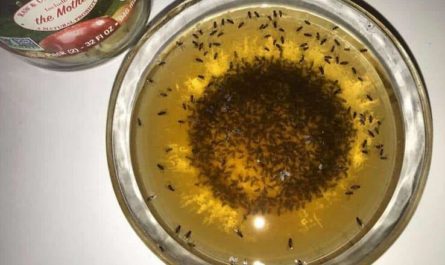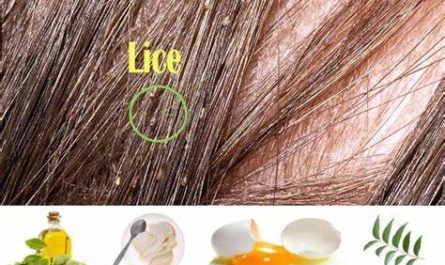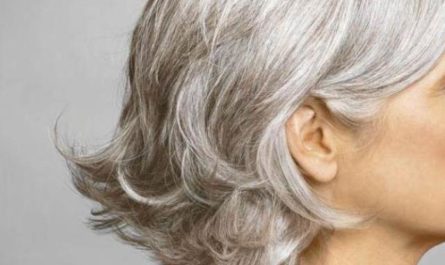Castor oil has been a well-kept secret in the world of natural hair care for centuries. It is derived from the seeds of the castor plant (Ricinus communis). The castor plant is native to tropical regions of Africa and Asia. In ancient Egypt, castor oil was used as a natural remedy for hair loss and to promote hair growth. Today, castor oil is widely recognized for its nourishing properties. It is also a popular ingredient in many hair care products. In this article, we’ll explore the 16 benefits of castor oil for hair and how you can incorporate it into your hair care routine.
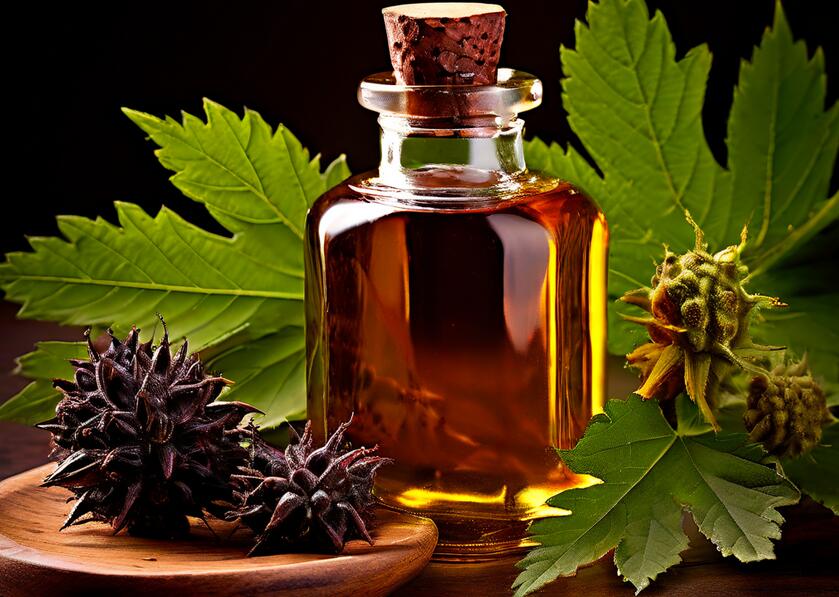
Nutritional Profile of Castor Oil
Castor oil is rich in various nutrients that contribute to its hair-nourishing properties. It contains:
- Ricinoleic acid – A unique fatty acid that makes up about 90% of castor oil’s fatty acid content. It has anti-inflammatory and antimicrobial properties.
- Omega-6 and Omega-9 fatty acids – Essential for maintaining health. Castor oil contains 25.57g polyunsaturated fat (omega-6) and 40.77g monounsaturated fat (omega-9) per 100g.
- Vitamin E – An antioxidant that protects the body from free radicals. Castor oil contains minor amounts.
- Minerals – Castor oil contains trace amounts of calcium, magnesium, potassium, and sodium (122.8mg per 100g). These minerals support immune function, bone health, and muscle function.
16 Amazing Benefits of Castor Oil for Hair
1. Promotes Hair Growth
Castor oil is renowned for its ability to promote hair growth. The ricinoleic acid in castor oil stimulates blood circulation in the scalp. This in turn nourishes hair follicles and encourages thicker, longer hair growth.
A study published in the Journal of Cosmetic Science found that applying castor oil to the scalp can increase hair growth by up to five times compared to other oils.
In addition to its circulation-boosting properties, castor oil also contains antioxidants that support keratin production. Keratin is a protein that makes up the structure of hair, and increased keratin production can give you stronger, healthier hair.
2. Strengthens Hair Strands
The rich fatty acids in castor oil deeply nourish hair shafts, making them stronger and more resilient. Regularly applying castor oil to your hair can prevent breakage, and split ends, and improve overall hair strength. The oil forms a protective layer around each hair strand, shielding it from environmental stressors and damage.
Castor oil’s ability to penetrate the hair shaft also helps to improve hair’s elasticity. Elasticity refers to hair’s ability to stretch and return to its original shape without breaking. When hair is more elastic, it is less prone to damage and breakage, resulting in healthier, more resilient locks.
3. Prevents Hair Loss
Castor oil’s nourishing properties not only promote hair growth but also help prevent hair loss. In addition, castor oil combats hair loss caused by various factors such as hormonal imbalances, stress, and nutritional deficiencies. Regular use of castor oil can lead to a fuller, thicker head of hair.
In a study published in the Journal of Ethnopharmacology, researchers found that castor oil exhibited hair loss prevention properties. The study concluded that castor oil could be an effective natural treatment for hair loss and could promote hair regrowth.
4. Moisturizes and Conditions
The high viscosity of castor oil makes it an excellent moisturizer for dry and brittle hair. It penetrates the hair shaft, providing deep hydration and nourishment. Castor oil’s conditioning properties leave hair soft, smooth, and more manageable. It is particularly beneficial for those with curly, coarse, or chemically treated hair.
In addition, Castor oil’s moisturizing properties can also help to reduce frizz and improve hair’s overall texture. By keeping hair hydrated and nourished, castor oil can help tame unruly locks and enhance hair’s natural shine and luster.
5. Thickens Eyebrows and Eyelashes
Castor oil’s growth-promoting properties extend beyond the scalp. Applying castor oil to your eyebrows and eyelashes can help them grow thicker and fuller. The oil nourishes the hair follicles and encourages new hair growth, giving you more defined eyebrows and lush lashes.
To use castor oil for eyebrow and eyelash growth, simply apply a small amount of oil to a clean mascara wand or cotton swab and gently brush it onto your eyebrows and lashes. Do this once or twice daily, and you should start to see results within a few weeks.
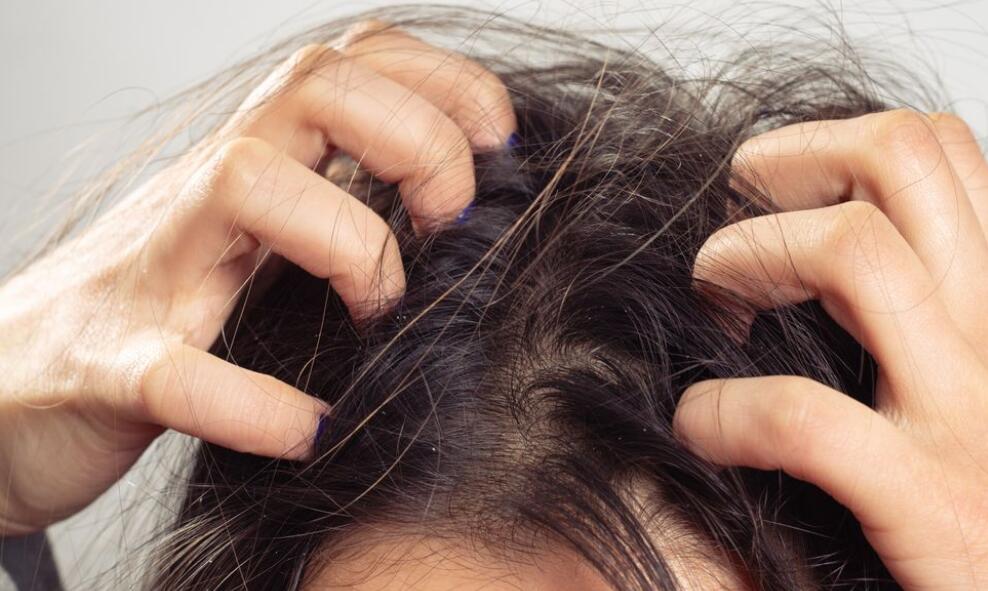
6. Soothes Scalp Irritation
The anti-inflammatory properties of castor oil make it effective in soothing scalp irritation, redness, and itchiness. It can help alleviate symptoms of scalp conditions such as dandruff, seborrheic dermatitis, and psoriasis. Massaging castor oil into the scalp can provide relief and promote a healthy, balanced scalp environment.
Castor oil’s antimicrobial properties also help to combat scalp infections and fungal overgrowth. In addition, castor oil can prevent the development of various scalp issues and promote overall hair health.
7. Tames Frizz and Flyaways
Castor oil acts as a natural serum, taming frizz and flyaways for a sleek and polished look. The oil’s thick consistency helps to smooth down hair cuticles, reducing frizz and adding a healthy sheen to your locks. A small amount of castor oil applied to the ends of your hair can work wonders in controlling unruly strands.
To use castor oil as a frizz-taming serum, rub a few drops of oil between your palms and gently run your hands over your hair, focusing on the ends and any frizzy areas. You can also add a few drops of castor oil to your regular hair serum or leave-in conditioner for added frizz control.
8. Natural Dandruff Treatment
The antibacterial and antifungal properties of castor oil make it an effective natural treatment for dandruff. By regularly massaging castor oil into the scalp, you can combat the fungal overgrowth that often causes dandruff. The oil’s moisturizing properties also help to prevent dry, flaky skin on the scalp.
To use castor oil as a dandruff treatment, mix a few tablespoons of castor oil with a few drops of tea tree essential oil, which has additional antifungal properties.
Massage this mixture into your scalp and leave it on for at least 30 minutes before shampooing your hair as usual. Repeat this treatment once or twice a week for best results.
9. Improves Scalp Health
A healthy scalp is the foundation for healthy hair growth. Castor oil nourishes and moisturizes the scalp, promoting a balanced environment that is conducive to hair growth. The oil’s fatty acids help to maintain the scalp’s natural oil production, preventing both dryness and excess oiliness.
Regular scalp massages with castor oil can also help to improve scalp health by increasing blood circulation and promoting relaxation. Increased blood flow to the scalp brings more oxygen and nutrients to the hair follicles, supporting healthy hair growth.
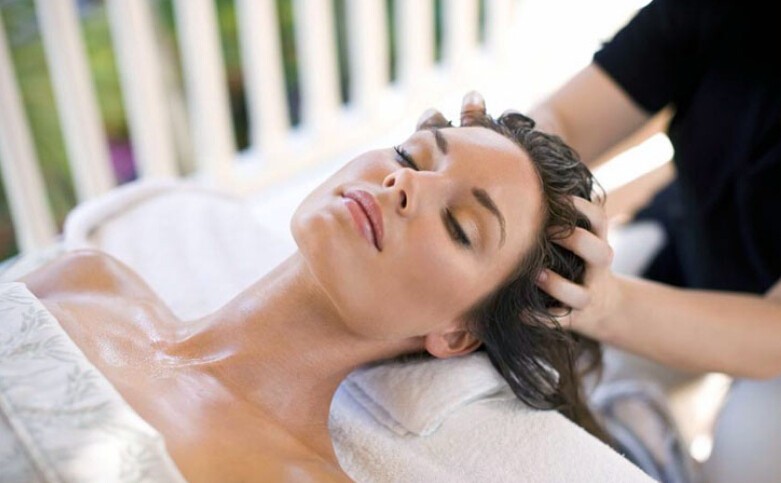
10. Enhances Shine and Luster
Castor oil can give your hair a beautiful, natural shine. The oil’s reflective properties add luster to dull, lifeless hair, leaving it looking glossy and vibrant. A small amount of castor oil applied to the ends of your hair can enhance its overall appearance and make it look healthier.
To use castor oil as a shine-enhancing treatment, apply a small amount of oil to the ends of your hair after styling. You can also add a few drops of castor oil to your regular hair oil or serum for an extra boost of shine.
11. Protects Against Damage
The protective layer formed by castor oil on hair strands helps to shield them from environmental stressors such as pollution, UV rays, and harsh weather conditions.
It also minimizes damage caused by heat-styling tools and chemical treatments. Applying castor oil to your hair can reduce the risk of damage and maintain the integrity of your hair.
Castor oil’s ability to penetrate the hair shaft also helps to prevent protein loss. By keeping hair well-nourished and hydrated, castor oil can help prevent damage and keep your locks looking healthy and strong.
12. Detangles Hair
Castor oil’s lubricating properties make it an excellent natural detangler. The oil coats hair strands, reducing friction and making it easier to comb through knots and tangles. This is particularly beneficial for those with curly or long hair.
To use castor oil as a detangler, apply a small amount of oil to your hair, focusing on the ends and any tangled areas. Use a wide-toothed comb to gently work through the tangles, starting from the ends and working your way up to the roots. The castor oil will help to smooth and lubricate the hair, making detangling a breeze.
13. Suitable for All Hair Types
One of the great things about castor oil is that it benefits all hair types and textures. Whether you have straight, wavy, curly, or kinky hair, castor oil can work wonders in improving its health and appearance. It is especially helpful for those with dry, damaged, or chemically treated hair.
| Hair Type | Benefits of Castor Oil |
|---|---|
| Straight | Adds shine, reduces frizz, prevents split ends |
| Wavy | Defines waves, enhances texture, tames frizz |
| Curly | Moisturizes curls, reduces frizz, defines curl pattern |
| Kinky | Softens and moisturizes hair, promotes growth, prevents breakage |
14. Improves Hair Elasticity
Castor oil enhances hair’s elasticity, making it more flexible and less prone to breakage. The oil’s fatty acids penetrate the hair shaft, improving its ability to stretch without snapping. This increased elasticity leads to stronger, more resilient hair that can withstand styling and manipulation.
A study published in the Journal of Cosmetic Science found that castor oil can significantly improve hair’s elasticity. The study compared the effects of various oils on hair elasticity and found that castor oil outperformed other oils.
15. Promotes Scalp Circulation
Massaging castor oil into the scalp stimulates blood flow to the hair follicles. This increased circulation brings more oxygen and nutrients to the follicles, creating an optimal environment for healthy hair growth. Regular scalp massages with castor oil can help to revitalize the scalp and promote thicker, fuller hair.
To give yourself a scalp massage with castor oil, follow these steps:
- Warm a small amount of castor oil in your hands.
- Apply the oil to your scalp, using your fingertips to massage it in with gentle, circular motions.
- Continue massaging for 5-10 minutes, making sure to cover your entire scalp.
- Leave the oil on for at least 30 minutes, or overnight for a deeper treatment.
- Shampoo your hair thoroughly to remove the oil.
Regular scalp massages with castor oil can help reduce stress, promote relaxation, and improve overall scalp health.
16. Versatile and Easy to Use
Castor oil is incredibly versatile and can be easily incorporated into your hair care routine. It can be used as a pre-shampoo treatment, where you apply it to your scalp and hair for a few hours before washing.
You can also use it as a leave-in conditioner, applying a small amount to the ends of your hair to keep it moisturized and protected. Additionally, castor oil makes an excellent scalp massage oil, promoting relaxation and boosting circulation.

How to Use Castor Oil for Hair?
To reap the benefits of castor oil for your hair, you can try the following methods:
- Pre-shampoo Treatment: Apply castor oil to your hair and scalp, focusing on the roots and ends. Massage it in thoroughly and let it sit for at least 30 minutes, or overnight for a deeper treatment. Wash your hair with shampoo and conditioner as usual.
- Leave-in Conditioner: Mix a few drops of castor oil with your regular leave-in conditioner or a carrier oil like coconut or jojoba oil. Apply the mixture to your hair, concentrating on the ends. This will help to keep your hair moisturized and nourished throughout the day.
- Scalp Massage: Massage a small amount of castor oil directly into your scalp using your fingertips. This stimulates blood flow to the hair follicles, which may promote hair growth. Leave the oil on for at least 30 minutes before shampooing.
- Deep Conditioning Treatment: Mix castor oil with other nourishing ingredients like avocado, honey, or yogurt to create a deep conditioning hair mask. Apply the mixture to your hair and scalp, cover it with a shower cap, and let it sit for 30 minutes to an hour before rinsing thoroughly.
- Hot Oil Treatment: Warm a mixture of castor oil and other hair-loving oils like coconut, almond, or olive oil. Apply the warm oil to your hair and scalp, massaging it thoroughly. Cover your head with a warm towel or shower cap and let the oil penetrate for 30 minutes to an hour before shampooing.
Remember to use castor oil sparingly, as a little goes a long way. It’s also important to do a patch test before applying it to your hair and scalp to ensure you don’t have any allergic reactions.
Precautions and Potential Side Effects
While castor oil is generally safe for most people, there are a few precautions to keep in mind:
- Castor oil can cause allergic reactions in some individuals. Always do a patch test on a small skin area before using it on your hair and scalp.
- Due to its thick consistency, castor oil can be difficult to wash out of hair. Use it sparingly and shampoo thoroughly to avoid buildup.
- Some people may find the smell of castor oil unpleasant. Mixing it with essential or carrier oils can help mask the scent.
- Avoid using castor oil if you have a known allergy to castor beans or other members of the Euphorbiaceae family.
- If you experience any adverse reactions, such as itching, redness, or swelling, discontinue use immediately and consult a healthcare professional.
Frequently Asked Questions
1. How often should I use castor oil on my hair?
The frequency of castor oil application depends on your hair type and concerns. For most people, using castor oil once or twice a week is sufficient to reap its benefits. However, those with particularly dry or damaged hair may benefit from more frequent use, while those with fine or oily hair may prefer to use it less often.
2. Can I leave castor oil in my hair overnight?
Yes, leaving castor oil in your hair overnight can allow more time for it to penetrate the hair shaft and work its magic. Simply apply the oil to your hair and scalp, cover it with a shower cap or towel, and let it sit overnight. Shampoo and condition your hair thoroughly in the morning to remove any excess oil.
3. What is the difference between regular castor oil and Jamaican black castor oil?
Jamaican black castor oil is made by roasting castor beans before extracting the oil, resulting in a darker color and slightly different nutrient profile. Some people find Jamaican black castor oil to be more effective for hair growth and conditioning, but both types of castor oil offer similar benefits for hair health.
4. Can castor oil be used on color-treated hair?
Yes, castor oil is safe to use on color-treated hair. In fact, its moisturizing and protective properties can help to preserve color vibrancy and prevent fading. However, it’s always a good idea to do a patch test before applying castor oil to your hair, especially if you have recently undergone a chemical treatment.

